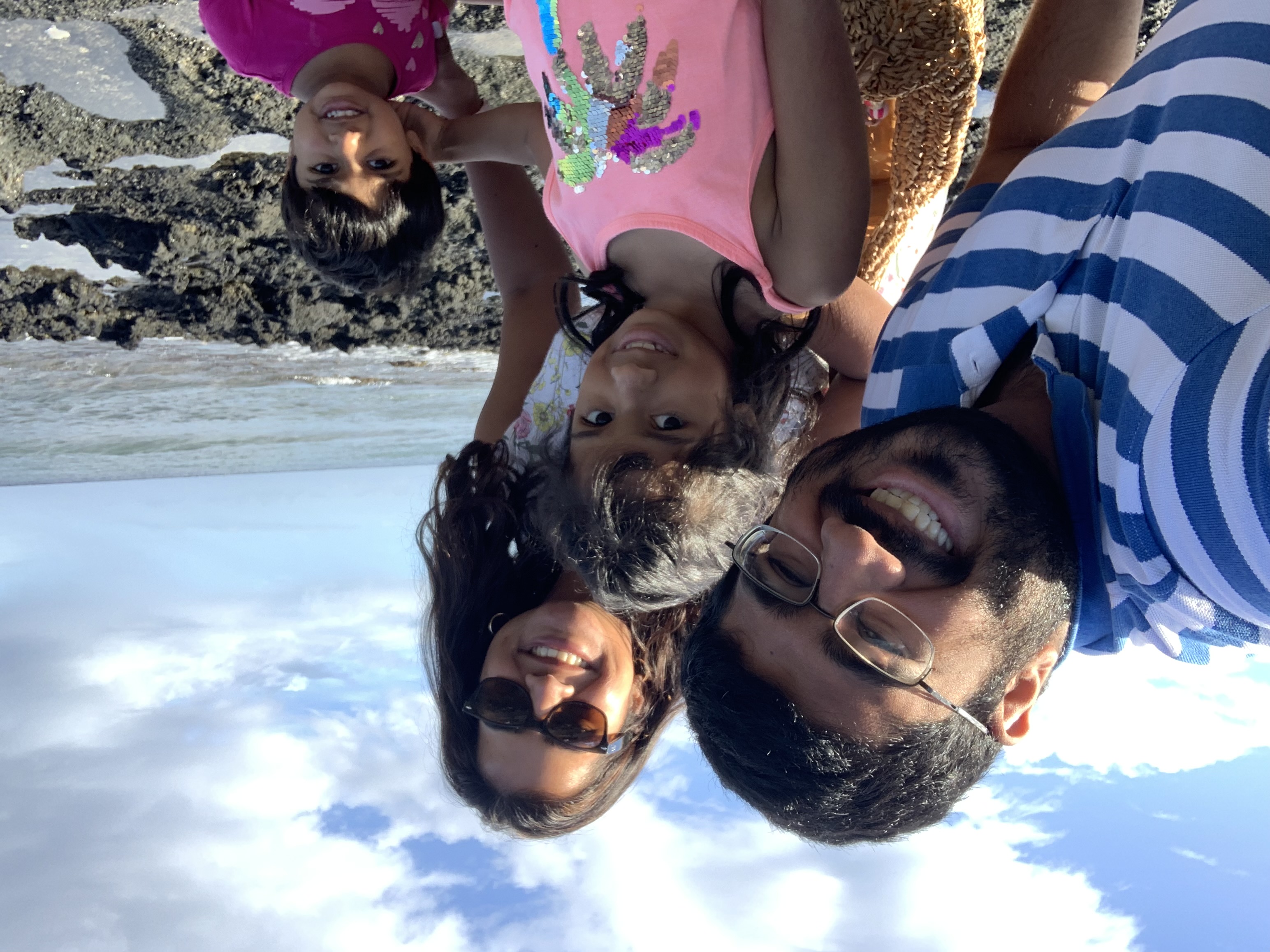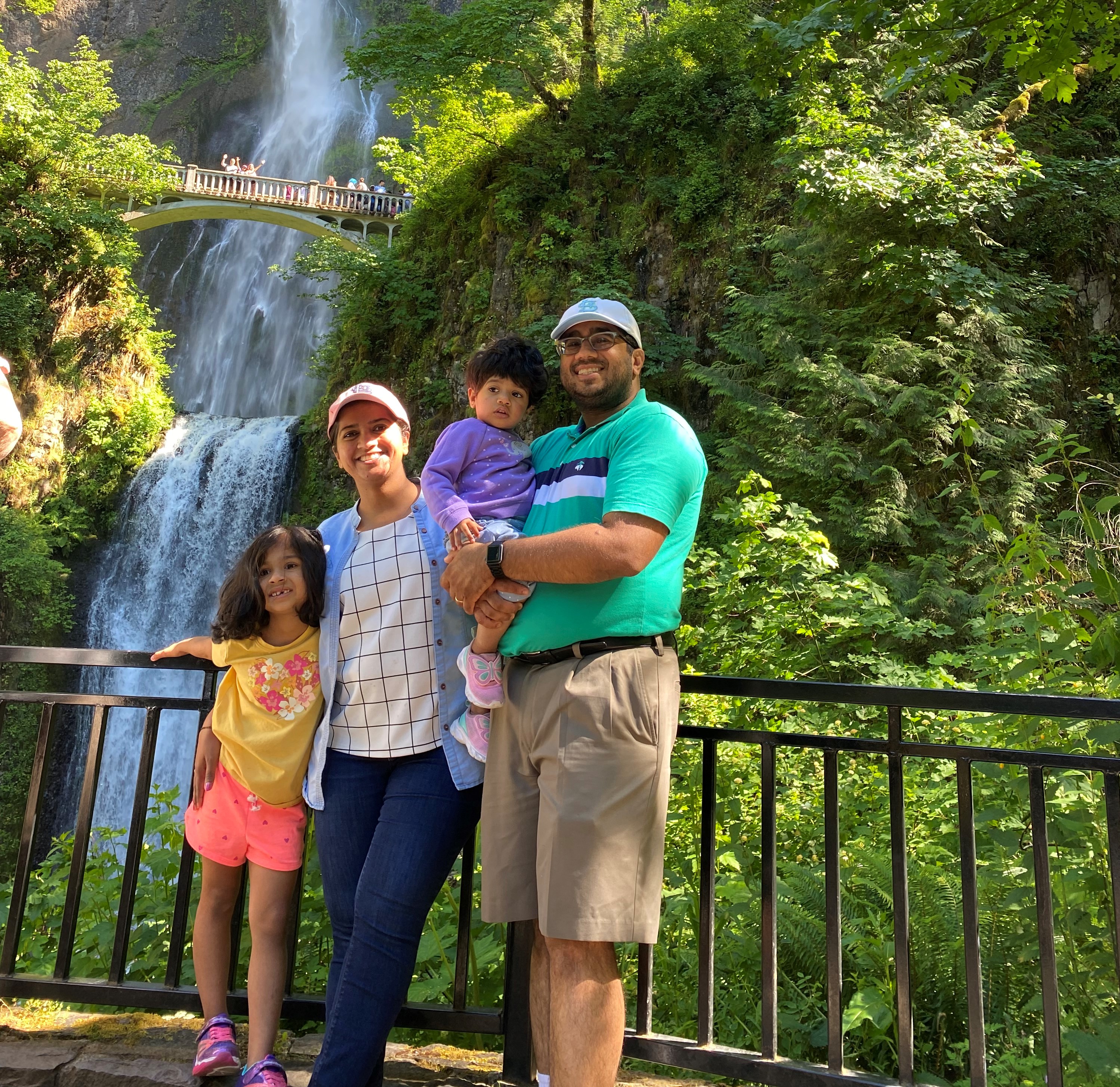
Your full title as you’d like it to appear.
Hrishikesh S. Kulkarni, MD, MSCI, ATSF
Assistant Professor of Medicine and Molecular Microbiology, Washington University School of Medicine in St. Louis.
Associate Program Director (Research), Pulmonary and Critical Care Medicine Fellowship
Co-Chair, Planning Committee, Allergy, Immunology and Inflammation Assembly
Three statements about you – two true, one false.
Do you think Dr. Kulkarni:
- Attended school in St. Louis, Missouri?
- Stayed home from school on his birthday each year?
- Has seen all four members of Pink Floyd play live?
- Give us your “elevator pitch” biography.
I am a physician-scientist whose research program focuses on reducing the burden of lung injury occurring in the setting of pneumonia and lung transplantation. I grew up and did my medical school in Mumbai, India, followed by training in in vitro and in vivo models of sepsis and ARDS at the University of California-San Francisco, an Internal Medicine Residency at the University of Pittsburgh, before moving to Washington University for a fellowship in Pulmonary and Critical Care Medicine. Since then, I have stayed on as faculty. In this role, I take care of critically ill patients and lung transplant recipients and run a research program in acute lung injury.
- What would you tell yourself as an Early Career Professional?
The period of postdoctoral training and the transition to the next step is a vulnerable period, and persistence, luck, and working with people who legitimately prioritize your interests helps. Seeking the right mentors and colleagues to guide you is key. Although one usually needs to pick a primary mentor to learn from, I have immensely benefited from a diverse group of advisors, who have now become colleagues, both within and outside my institution. However, you learn not only the science but also values from them, and then pay it forward to your own trainees and mentees. Second, a firm foundation in whatever you are training in is also important – be it primarily clinical medicine, education, administration, and/or research. It helps to develop a foundation in all of these areas regardless of the ultimate career plans, because there will be aspects of each that are necessary regardless of which area one ends up focusing on. Third, there appears to be a lot of information to process these days – and identifying some daily protected time for yourself where you can process information relevant for your day-to-day practice so that you can improve yourself intellectually and become more effective is critical. And finally, it is easy to ignore health and family life — and it helps to remind ourselves of the roles these play in our lives, and how they need to be nurtured to keep going.
- If you weren’t in medicine, and were in a different industry altogether, what would you be?
I enjoy planning travel and vacations for our family – or in general, planning and executing things – so my sense is it would have to do something with being a travel planner, or planning to help people do the things they enjoy doing.
- What is your favorite way to spend a day off?
My wife is an immunologist and we have two adorable young daughters. As both of us are often busy with our work, we like to see new places and spend time together as a family. So, it usually involves driving or flying somewhere and spending time with family and friends. On a day alone, I enjoy jogging, reading and playing the guitar.

- What areas of medicine are you most excited to see develop?
We are just beginning to see the integration of data sciences with disease in a way where we can leverage unbiased methods to give us a better understanding of the disease pathophysiology. It appears to be in its infancy, but with the right study design, expertise in each of the areas and advances in technology, while integrating with the basics at the bedside (such as physiology), I am hopeful we will unravel what is truly going on in a specific disease. We have the discoveries in cystic fibrosis, and the advancements in pulmonary fibrosis to provide us with enthusiasm yet provide a sobering note that there is more to be done. Also, our animal and preclinical models of disease continue to get better, and hence, I am excited to integrate these areas, rather than segregate them, to better understand the pathogenesis of hard-to-treat lung diseases.
- What is one advancement in your field you’d like to see in your career?
I would like us to be able to personalize the therapeutics in our field better by understanding where the patient is in the stage of the disease, and what targetable pathways are predominantly contributing to the underlying problem. This concept applies broadly to multiple diseases. For example, there is firstly, disease heterogeneity in ARDS, but there are also inherent issues related to the cause and where the patient is in the disease course, among other factors. I wish we were able to get a fairly quick snapshot of this concept such that we can manage the disease more specifically and facilitate recovery. It is even worse in diseases such as chronic lung allograft dysfunction after lung transplantation, where there are often no options for treatment, and the patients and their families are staring at death in the eye when you tell them there is nothing more for you to offer them. This advancement will need clinicians, investigators (not only in the biomedical sciences but often in basic sciences such as physics, chemistry, engineering and data science), industry, patient advocates, and funders to come together in an innovative and dedicated manner, to accomplish these goals. The ATS is an excellent avenue for that, and we should all think about leveraging this network to accomplish these goals together.
- Which statement did you make up?
I have not seen all four members of Pink Floyd live; I have only seen David Gilmour and Roger Waters, although separately, which emphasizes that you should go see your favorite bands playing live when they are together if you enjoy their music.

